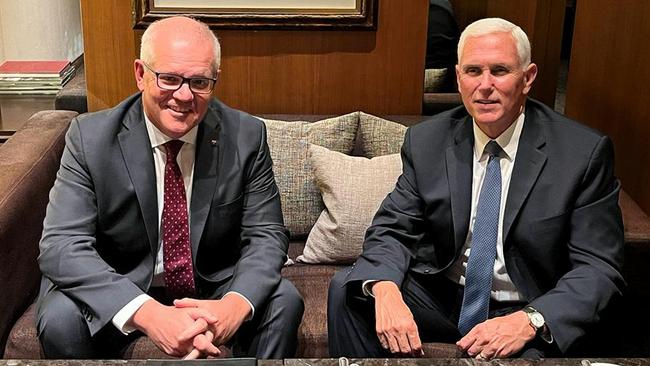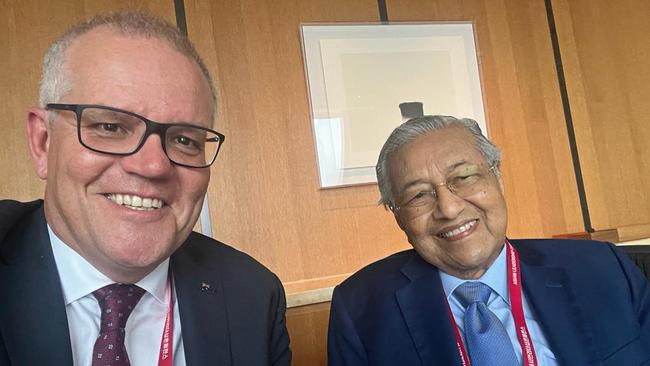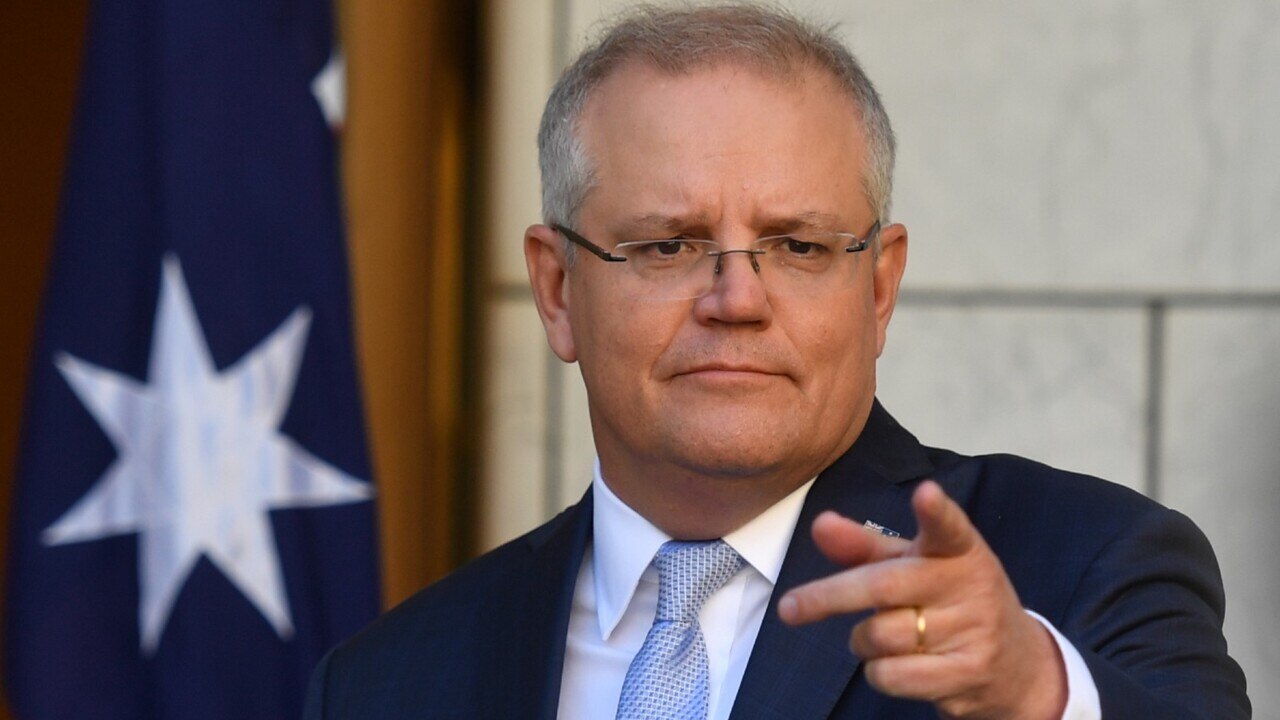Scott Morrison says Covid-19 and national cabinet hurt his election chances in first post-poll speech
Scott Morrison says his government paid a damaging cost for managing the pandemic, admitting he took an unavoidable ‘hit for the mission’.

Scott Morrison says there was a damaging political cost to his government’s response to the pandemic, admitting that he as leader took an unavoidable “hit for the mission” in the creation of the national cabinet and trying to manage the federation during the crisis.
He also admits that when things inevitably went wrong, as leader “you just have to cop it”.
But the former prime minister maintains there had been no alternative and will tell an international forum on Thursday that his government’s management of the Covid pandemic ranked among the most successful in the world despite the frustrations endured by many Australians.
In his first official public appearance since the May 21 election loss, Mr Morrison will on Thursday deliver an address to the Asian Leadership Conference in Seoul, mapping out how Australia had outperformed most other countries in both health and economic outcomes.
“The results we were able to achieve were no accident. It was ‘no fluke’ as we like to say,” he will say in his speech, given exclusively to The Australian.
“Australia’s results do tell a proud story. One of the lowest fatality rates, highest vaccination rates and strongest economic performances of any developed country in the world.
“Australia has the third lowest mortality rate in the OECD at 401 deaths per million population. This can be compared with Canada at 1106 per million, the UK at 2688 per million and the US at 3031 per million. During the pandemic, we estimate that when compared to the average fatality rates of OECD countries, Australia’s response saved an estimated 40,000 lives.
“More than 95 per cent of the Australian adult population have had two vaccine doses, and we have already commenced fourth doses.

“Likewise, since December 2019, when the pandemic first struck, Australia’s economy has grown by 4.5 per cent. This compares to 3.9 per cent in Korea, 2.7 per cent in the US, and less than 1 per cent in the UK, Canada and France, while the Japanese and German economies remained in negative territory.
“Australia’s success was partly achieved by limiting the scale of our economic decline during Covid,” Mr Morrison will say.
In his speech, the former PM will explain the rationale for the creation of the national cabinet, which has been adopted unaltered by the Albanese government, despite the inevitable political cost in deliberately parking normal domestic politics for the good of the country.
Addressing the annual dialogue, which is also hosting former US first lady Michelle Obama and former US vice-president Mike Pence, Mr Morrison will admit there’s been a price to pay for Australia’s successes. “Frustration with the national cabinet was actually frustration with the nature of our Constitution and federation,” he will say in the speech.
“But in a crisis, this was no time to engage in a political debate about our federation, nor as the national leader to pick fights with provincial leaders.
“Leadership often requires you to take the hit for the mission you are engaged in.
“This was certainly the case when it came to managing our federation during the pandemic.
“A crisis demanded that you curb your natural defensive domestic political instincts to focus on the bigger job and bigger picture. It could not be politics as usual.
“That said, for all its critics, the national cabinet proved its worth in the outcomes we were able to achieve together. And I am yet to hear of a better alternative.”
“As prime minister, I chaired 57 meetings of the national cabinet over a two-year period.
“At no time in our history had state and federal leaders met as often, as extensively and with such candour as during this time.
“But we didn’t always agree, especially when it came to issues where the medical advice was not consistent such as state borders, school closures or vaccine mandates.
“As the pandemic evolved, it became more difficult to keep uniformity in the various restrictions employed by each state as the experience of the virus was no longer uniform.
“When we disagreed, this caused great frustration among the public. While such disagreement was inevitable, many Australians found it difficult to understand why the prime minister could not just make the decisions.

“Some even mistakenly believed that the establishment of the national cabinet had devolved federal powers to the states. This was untrue. The states had always had these powers.”
On the sidelines of the first day of the conference in Seoul on Wednesday, Mr Morrison held meetings with former US vice-president Mike Pence and former Malaysian prime minister Mahathir Mohamad.
Mr Pence in his address on Wednesday praised Australia’s role during the pandemic and its leadership of the geopolitical issues in the Indo-Pacific.
Mr Morrison in his speech will say that, on reflection, the key to managing the pandemic was to be across the detail.
“As I look back on those times now, there are many takeouts, especially from a leadership perspective,” he will say. “One of the most important is that in a crisis leaders must be across the detail.
“You quickly become the central point of all information, communication and decision making.
“You set the pace, tone and direction of the national response. Attention to detail matters critically, especially when it comes to process.
“Events move very quickly in a crisis. Sound process provides the guardrails to get things as right as you can, and the mechanisms to fix them quickly when you don’t.
“The flow and source of your information and advice, the decision-making process, your accountability and follow-up mechanisms, implementation plans – it all matters.
“This should not be confused with becoming a control freak, wanting to be hands-on in implementing all aspects of your response. That is a recipe for disaster,” he will say.
“You must be able to trust and delegate, understanding that you and your team will not get everything right. And you must reconcile yourself to the fact that when it does go wrong (which it certainly will at some point) and events conspire against your best-laid plans and advice, as the leader you will just have to cop it.”




To join the conversation, please log in. Don't have an account? Register
Join the conversation, you are commenting as Logout